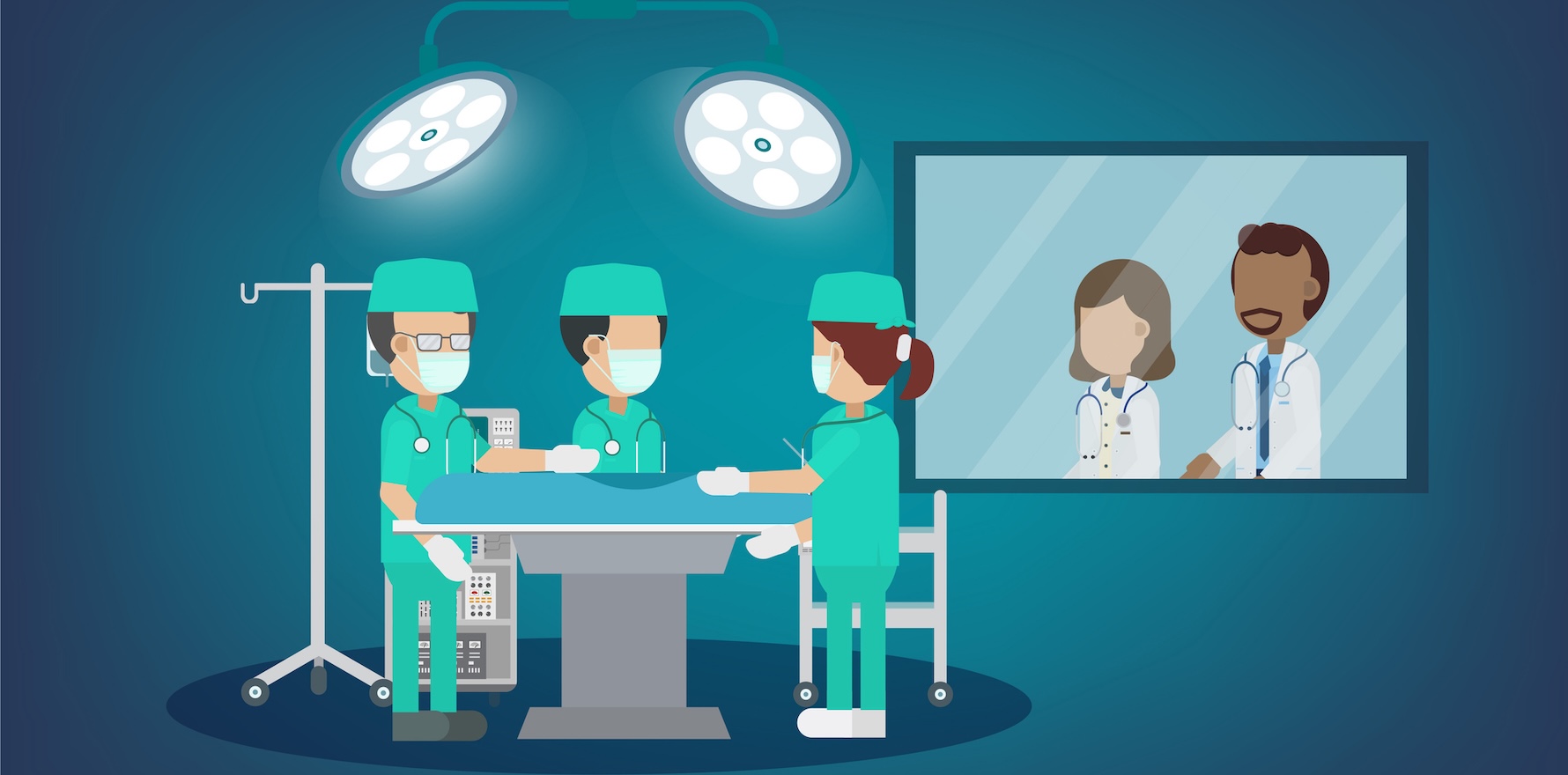Telesurgery gear which facilitates the remote dial-in of specialists has been introduced to three central Queensland hospitals, providing multiple benefits and potentially avoiding one source of bed block.
In May this year, after years of lobbying and local fundraising, the deputy director of surgery at Rockhampton Hospital in central Queensland, Dr Michael Lamparelli, got his wish.
Three central Queensland hospitals, including his own, signed a deal with US-based telehealth giant Teladoc to acquire specialised telehealth equipment which allows specialists to dial in virtually to a surgery to observe in detail what is happening via multiple cameras and provide advice to their peers on the ground.
Just one month later, the equipment probably saved a life at Dr Lamparelli’s hospital.
Dr Lamparelli told the ABC in a news story in July that the equipment was used in an emergency involving a patient that had a significant bleed occurring in their skull, when neither he nor other appropriately qualified local surgeons were available onsite to do the complex procedure required.
The situation was able to be managed remotely when Dr Lamparelli used his own mobile phone dialled in from Brisbane to help another remote specialist “scrub in virtually” to the live surgery at Rockhampton Hospital.
Dr Lamparelli managed to connected Brisbane neurosurgeon Craig Winter into the live surgery to assist the general surgeon on-call in Rockhampton, who had never performed that particular operation before.
“The patient had a significant bleed inside their skull, causing pressure on their brain,” Dr Lamparelli told the ABC.
“What I was able to do was push those images from my phone to the neurosurgeon, and he was able to supervise that case … talking to her [the on-ground surgeon] through the whole procedure,” Dr Lamparelli said.
Dr Lamparelli believes the equipment very probably avoided the patient suffering permanent damage, or even death.
According to Teladoc the new equipment not only fosters enhanced procedural collaboration but it helps manage capacity overflow during very busy periods of surgery, provides piece of mind to local remote hospital doctors about having back-up at hand at any time, reduces expensive patient transfers and travel of relatives, and facilitates better supervision and training for local trainee doctors.
The equipment first and foremost allows surgeons to remotely provide “over the shoulder support”, consultation and specialist guidance without physically having to travel to the actual site of the surgery.
“The most exciting thing about this is clinicians feeling supported,” said Christina McInally, telehealth coordinator and clinical nurse consultant at Central Queensland Hospital and Health Service.
“They have someone to call and know that what they are doing is the right thing. They can learn from others, whether that is an urgent situation, a supervision, or education – it’s that collegial support.”
The new technology can also reduce the need for expensive and time-critical patient transfers between hospitals. This should especially be the case for certain rural and remote healthcare providers around the country.
“Having the knowledge that any clinician could dial in to support a colleague and say ‘I’m going to be here for you, let’s get the patients cared for there’ means the clinicians are doing more and feeling more valuable to the local community,” said rural generalist and clinical director of Capricorn Coast Hospital Dr Andrew Scott.
“The patient and family could avoid travel over several days and all the potential consequences that come from that. And as a result, there is a hospital that’s not bed blocked. There are huge, huge impacts.”
The Teladoc solution also significantly accelerates learning and skill acquisition among medical trainees, according to Dr Lamparelli.
He said that surgical residents and trainees can now benefit from direct virtual access to the operating room, observing and engaging in complex procedures through live-streaming technology and interactive features that replicate the in-person surgical environment.
“It’s going to allow us to virtually scrub-in rather than be in-person in theatres, particularly with our trainees transiting towards independent practice,” he said.
Note: If you want to hear more about this technology in practice and the fast-growing resource of specialists available on-call virtually for any hospital around the country, Health Services Daily is hosting talks from both Teladoc and virtual specialist care provider Telecare at the upcoming New Models of Care Shaping the Future of Hospitals Summit in Sydney on 16 October.
You can look at the speakers and program and buy a 20% discounted ticket HERE, using this code HOSPITALS20.

